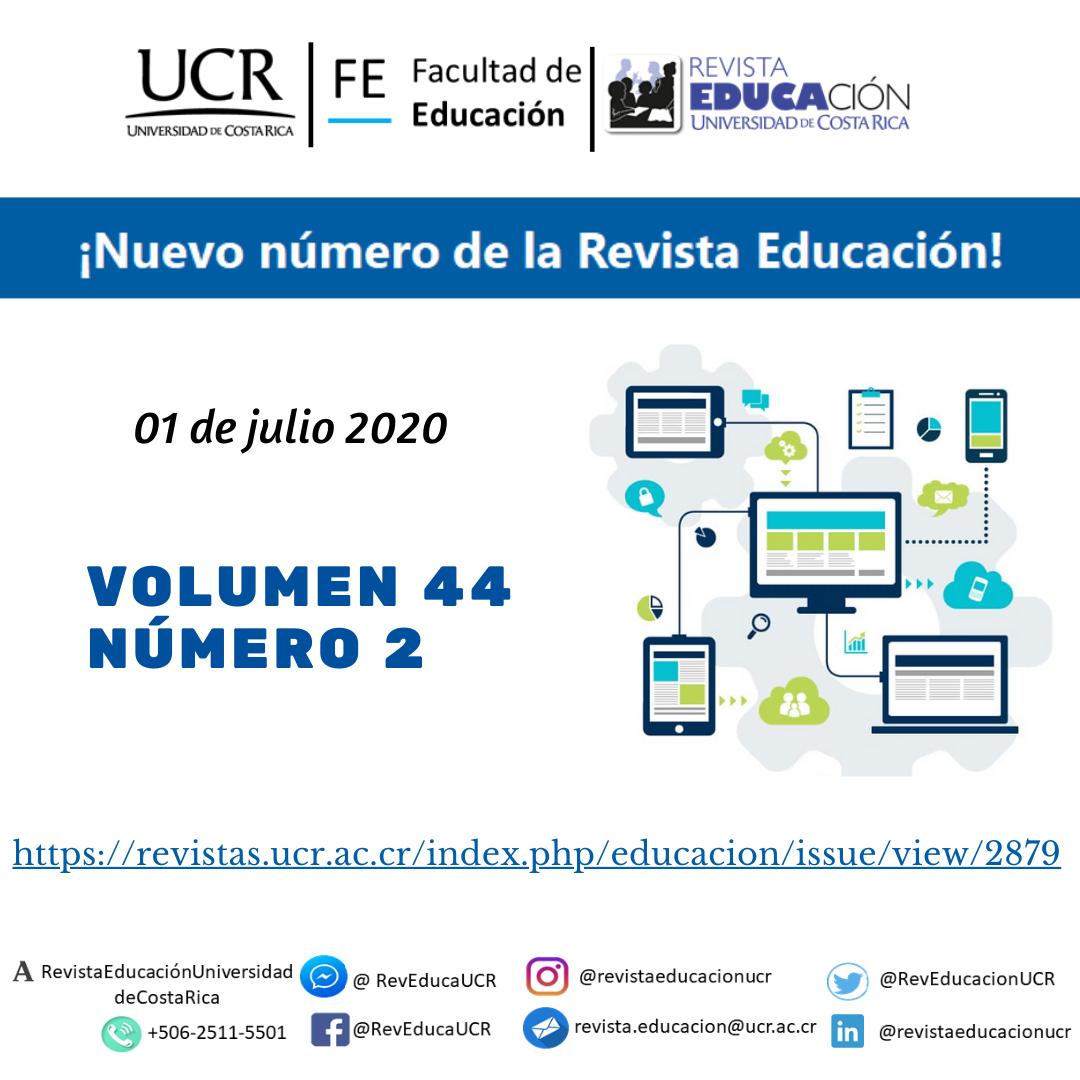Abstract
This study proposes a change in perspective with regards to the educational model so that teacher-student interaction may be conducted in a bidirectional-dialectical manner. Teachers must be an innovative and intellectually challenge students through case resolution, encouraging them to ask questions, strengthening their oral skills and assess learning through argumentation as well as logical, rational and valid reasoning. Teachers should help students identify their errors instead of providing the correct answer immediately as soon as a student makes a mistake. Teachers should also expect student participation to be active.
References
Arias, M. y Francis, S. y Marín, P. (2012). Modelos Pedagógicos de formación docente en la Universidad de Costa Rica. Precisiones, historia y desafíos. Costa Rica: Departamento de Docencia Universitaria, Escuela de Formación Docente Universidad de Costa Rica.
Bain, K. (2004). What the Best College Teacher do. Cambridge: Harvard University Press.
Capella, J.R. (2004). El aprendizaje del aprendizaje. Una introducción al estudio del Derecho. Madrid: Editorial Trotta.
Carrió, G. (1995). Cómo estudiar y cómo argumentar un caso. Consejos elementales para abogados jóvenes. Buenos Aires: Editorial Abeledo-Perrot.
De Alcántara, P. (1999). Compendio de pedagogía teórico-práctica. Alicante: Biblioteca Virtual Miguel de Cervantes.
Delors, J. (1996). La educación encierra un tesoro. España: Grupo Santillana de Ediciones.
Haba, P. (1995). Pedagogismo y “Mala fe”. Costa Rica: Investigaciones Jurídicas, S.A.
Imbernon, F. y Medina, J. L. (2006). Metodología participativa en el aula universitaria. La participación del alumnado. En M. Martínez y S. Carrasco (Coords.), Propuestas para el cambio docente en la universidad. (pp. 91-121). Barcelona: Ediciones Octaedro.
Picardo, O., Escobar, J. y Balmore, R. (2005). Diccionario Enciclopédico de Ciencias de la Educación. San Salvador, El Salvador: Centro de Investigación Educativa, Colegio García Flamenco.
Paulus, C. (2003), Schlüsselqualifikationen im Studieninhalt. En: V. Römermann y C. Paulus. (Eds.). Schlüsselqualifikationen für Jurastudium, Examen und Beruf. Ein Lehrbuch (pp. 1-32). Múnich, Alemania: Editorial C.H.Beck.
Pausch, R. (2008). The last Lecture. Nueva York: Hyperion.
Pérez, L. (2013). El rol del docente en el aprendizaje autónomo: la perspectiva del estudiante y la relación con su rendimiento académico. Revista Repositorio Digital de la Ciencia y Cultura de El Salvador, 7 (11), 45-62.
Perkins, D. (2009). Making Learning Whole: How seven principles of teaching can transform education. San Francisco, California: Jossey-Bass.
Real Academia. (1994). Diccionario de la Lengua Española (Vigésima Primera Edición). Madrid: Real Academia Española, RAE
Ruiz, L. (1904). Tratado elemental de Pedagogía. México: Herrero Hermanos, Editores.
Schunk D., (2012). Teorías del aprendizaje. Una perspectiva educativa, México: Pearson Educación.






